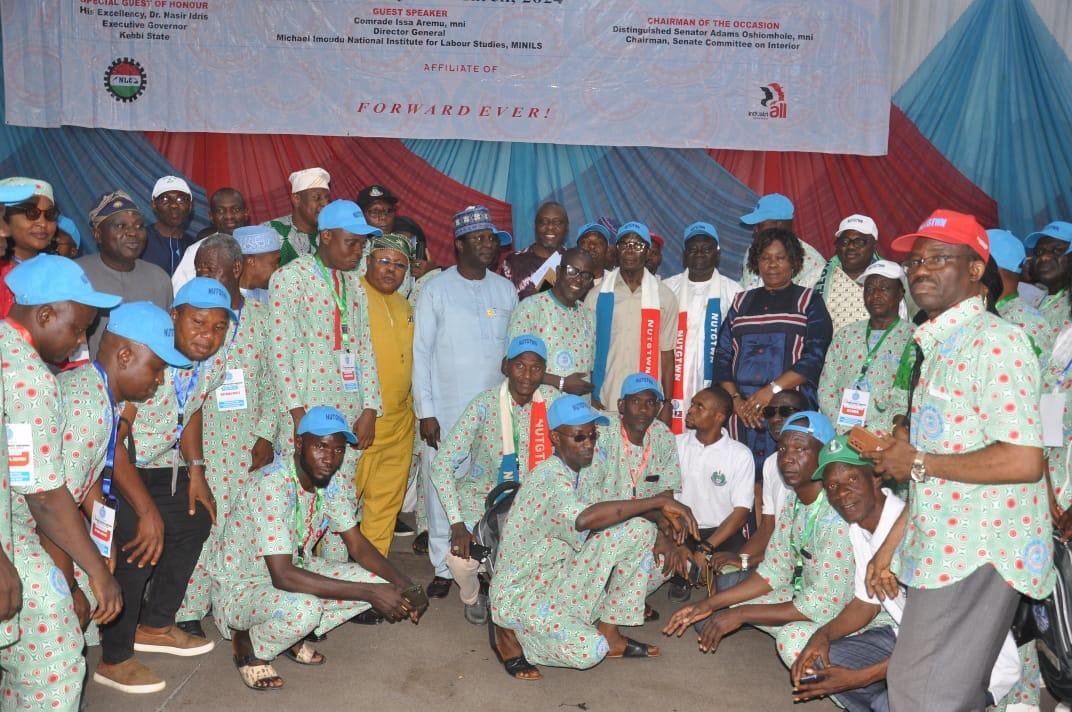4 April, 2024The National Union of Textile Garment and Tailoring Workers of Nigeria (NUTGTWN), an IndustriALL affiliate, held its 13th National Delegates Conference under the theme: building union power for sustainable industrialization and the future of work. The conference took place in Abuja, Nigeria from 25-27 March.
Over 200 delegates from the private sector unions forum, the Nigeria Labour Congress, the Nigerian Textile Garment and Tailoring Employers Association, and IndustriALL affiliates from Nigeria, Kenya, Ghana, South Africa, Zambia, and Zimbabwe participated at the conference.
The conference took place on the backdrop of a declining textile and garment sector. According to the NUTGTWN, which has over 18 000 members including self-employed tailors, this decline has been worsened by the counterfeiting of local Nigerian products, smuggling, and cheap imports textile imports.
These cheap goods flooded the market and made locally manufactured goods more expensive. The union said that the decline has also contributed to increasing inequality, poverty, and crime. However, the union identified industrialization and the transformation of the textile and garment industry in Nigeria as some of the solutions.
The conference also reflected on reviving a labour-intensive cotton, textile, and garment industry, and protecting current jobs. There were also discussions on what the union expected from the future of work in this sector.
The NUTGTWN said the effective implementation of national policies that included the Cotton, Textile, and Garment policy and the Executive Order 003, which supported local procurement by the Federal Government of Nigeria, and the Made-in-Nigeria initiative, were important in stimulating domestic industries, creating jobs, and reducing reliance on imports.
“The key to real transformation and economic recovery lies in manufacturing. The textile industry has potential to create over two million jobs and bridge the huge unemployment gap in the country,”
said John Adaji, NUTGTWN former president and co-chair for IndustriALL Sub-Saharan Africa region.
The participants argued that the enforcement of policies would also save the economy resources by reducing the import bill on textiles and garments. Discussions pointed out that intra-African trade through the African Continental Free Trade Area was key and trade agreements that included the US African Growth and Opportunity Act were pivotal to the revival of the textile and garment industry in Nigeria.
The union identified the following as key factors that will shape the future of work in the textile and garment industry: globalization, digitalization, information and communication technologies, demographic shifts, especially the youthful population, and climate change.
IndustriALL’s Sub-Saharan Africa regional secretary, Paule France Ndessomin, said:
“We applaud the strategies by NUTGTWN to organize self-employed tailors in the informal sector. Confronted with a huge informal economy, unions should explore ways to organize these workers as per International Labour Organization Recommendation 204 (Transition from the informal to the formal economy). The union must also organize workers in non-standard forms of employment to build union power and to also protect their rights at work.”










